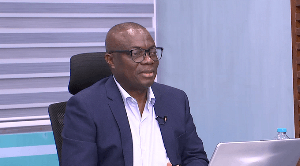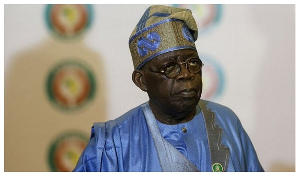By Joseph Owusu
In the early 1990s, shortly after the end of the Cold War, I wrote a paper, arguing that the moment of Africa's economic and political resurgence had arrived. Why? The conventional wisdom was that the end of the Cold War also marked the end of Africa's victimhood as pawns in the proxy wars between the United States and the then-Soviet Union.
The Cold War’s ending was so abrupt; nobody expected it to end the way it did. Even though Africa is geographically far removed from the US and the former USSR, the continent provided such a fertile ground politically as well as economically for the superpowers to tussle in our backyard. This tussle between two elephants on the world’s second largest continent played a major role in civil wars (for example in Congo, Angola, and Sudan), rampant coup d’états (Ghana 1966, Congo 1960) and accentuated ethnic rivalries. The political, economic and security rift between the United States and the Soviet Union was very ideological and tense, and in Africa (as in Central America and South Asia), the struggle for American and Soviet influence contributed to a series of factors (e.g. colonialism, “artificial” national borders, African rivalry over land and dominance, etc) that pit one ethnic group against another, and black nation against fellow black nation (Angola vs. South Africa vs. Namibia).
With this ideological war's end in the early 60's, the stage seemed to be set for Africa to concentrate on creating a better world for its people and securing its rightful place in the world. But strangely enough, the war's ending unleashed the worst nightmares for Africa's: it marked the breakout of even more civil wars and political chaos. West Africa in particular literally went up in flames: Liberia burned; Sierra Leone imploded; Ivory Coast went helter smelter. In the Eastern and Central Africa, Uganda, Congo, Rwanda, Burundi were consumed by conflagration. The Southern region saw escalation of wars in Angola and Mozambique, whilst fighting escalated in the perennial hotspot in the horn of Africa—Ethiopia, Eritrea, Somalia.
Apparently, the Cold War heightened already existing rivalries in Africa: ethnic and religious differences were more deeply drawn as geopolitical strategies in the East and West sought to promote their self-interest in the proxy war. The falling of the Berlin Wall created a vacuum that oiled the flames of war on the continent. Thus, the optimism that greeted ending of the Cold War and the hope that the decade of the 90s was the beginning of great things to come for Africa turned out to be a mirage.
Can we get it wrong again? This time the spread of democracy and fall of military juntas and dictators—long the scourge of Africa's progress—marks a new turning point for the better. More African nations, including Ghana, Senegal, Nigeria, South Africa, Benin, Mozambique, etc, are democracies than ever before. This has already reaped huge economic benefits for the continent as many African countries (Ghana, South Africa, Botswana, etc) are registering economic growth rates of 5% or higher. The fall of military dictatorships means that African nations are now better governed and are more transparent.
Now the fear is can democracy take root in Africa without some resistance and ultimate cost? There are still pockets of resistance to new phenomena as hold outs from the old era that benefit from the corruption of dictatorships are resisting the new winds of change. Togo’s Eyadema resisted change till his death in 2005 after almost 38 years in office, whilst Ghana’s Rawlings and his followers continue to celebrate the coups of 1979 and 1981. Such elements are always fomenting trouble to bring back the old system.
Moreover, the system of democracy has its flaws and tends to accentuate already existing differences. A lot of this will depend on leadership; responsible leaders can always avoid such pitfalls by putting the interest of the people ahead of their own deep-seated tendencies to gain or perpetuate power by any means.
In the end, the new prognostication for Africa's success following the winds of democracy blowing over the continent sounds plausible. Already countries like Ghana, Mozambique and Uganda have shown great strides the hope is that more African countries will follow in their stead.
Contact: jowusu@gmail.com
Opinions of Saturday, 25 April 2009
Columnist: Owusu, John














